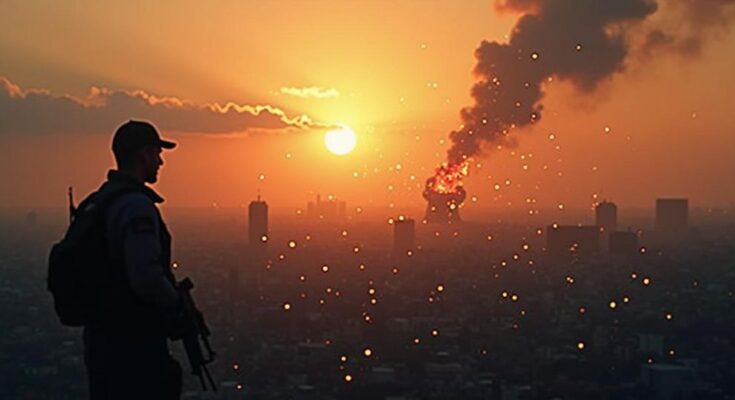Israel has struck Damascus and intensified military actions against Hezbollah, killing a senior official amidst rising tensions with Iran, which warns Gulf states of consequences for aiding Israel. The IDF is discussing the return of evacuated residents from the north due to continued rocket barrages from Hezbollah, raising concerns of a prolonged conflict in Lebanon while addressing humanitarian needs.
Israel has launched a series of airstrikes in Damascus and has intensified military operations against Hezbollah in Lebanon. The Israel Defense Forces (IDF) announced the killing of a senior Hezbollah official in Beirut and the interception of a drone that entered Israeli airspace. Concurrently, Iran has issued a warning to Gulf states, indicating that any support for Israel against Iran would be met with a strong response. Iranian Foreign Minister Abbas Araqchi is currently visiting Saudi Arabia and other Gulf nations amid rising tensions following Iranian missile strikes. Furthermore, the IDF is considering plans for the return of approximately 60,000 Israeli residents who were evacuated from northern regions due to ongoing hostilities. This discussion includes evaluating the necessary civilian and infrastructural repairs in those communities, as Hezbollah continues to launch significant rocket attacks, including over 200 strikes on Haifa. As the conflict progresses, there are ongoing assessments regarding the duration of military operations in Lebanon, with debates surrounding the IDF’s long-term strategy against Hezbollah and the potential for increased military action as winter approaches. Despite these challenges, the IDF has maintained pressure on Hezbollah, claiming to have killed numerous fighters and destroyed weapon stockpiles. The Israeli Home Front Command has responded to the heightened rocket threat by enforcing stricter safety regulations in Haifa and the surrounding areas.
The ongoing conflict in the region has seen Israel engaged in military action against Hezbollah following escalating attacks across the Israeli-Lebanese border. The IDF’s operations aim to dismantle Hezbollah’s military capabilities, which have resulted in increased rocket fire into Israeli territory, specifically targeting urban areas such as Haifa. Iran’s involvement adds a further layer of complexity, as Gulf states navigate their relationships with both Iran and Israel in light of ongoing tensions. The return of displaced northern residents and the need for infrastructural recovery illustrate the broader humanitarian impact of the conflict as military confrontations continue.
In summary, the situation remains volatile, with Israel actively conducting military strikes against Hezbollah while facing retaliatory threats from Iran. The IDF is balancing the immediate need for civil recovery in northern regions with ongoing security operations. As the conflict evolves, the implication of regional alliances and the military strategies employed by both Israel and Hezbollah will be critical in shaping the future of this tense situation.
Original Source: www.jpost.com




